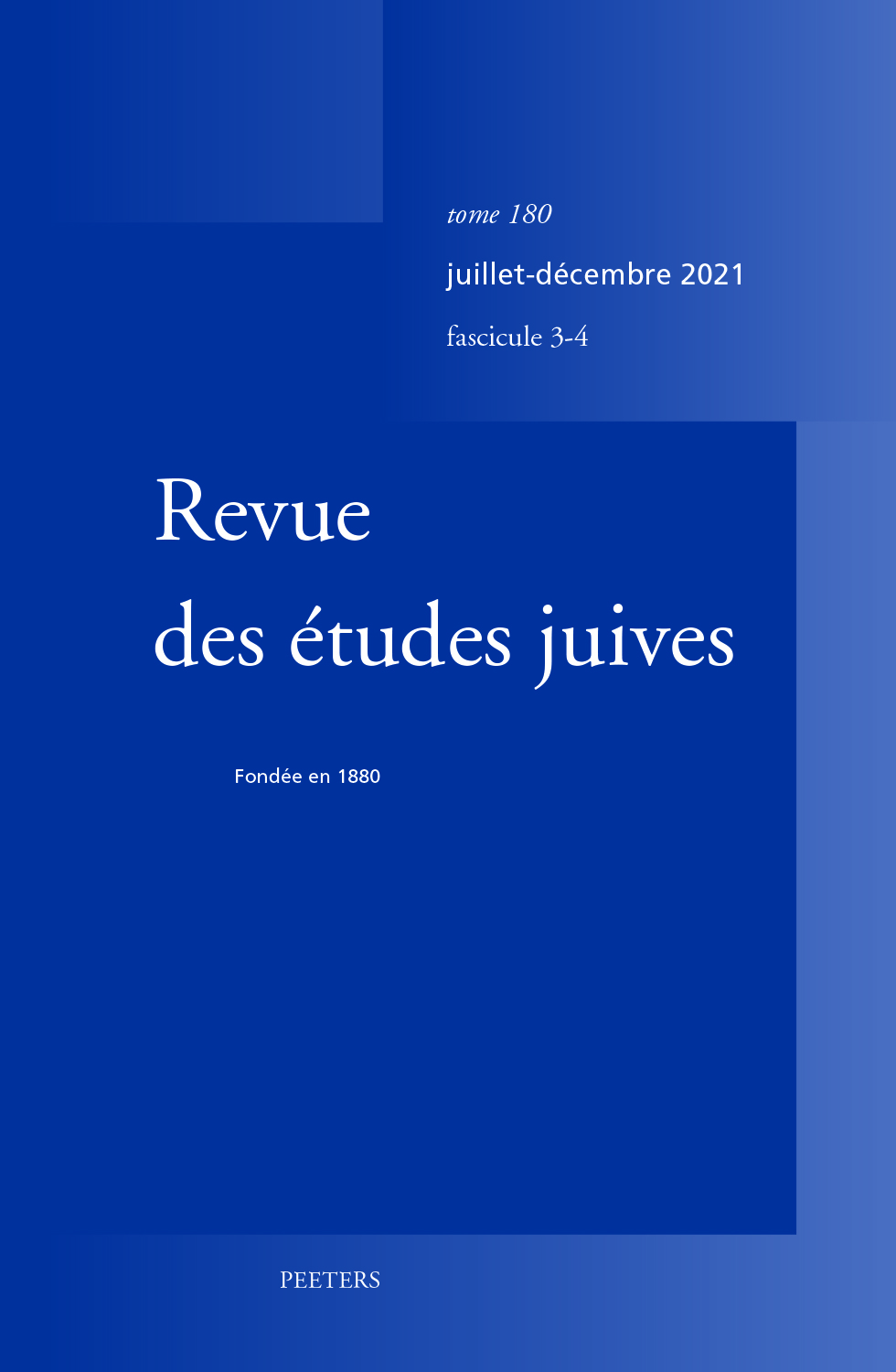 previous article in this issue previous article in this issue | next article in this issue  |

Preview first page |
Document Details : Title: Poverty, Paupers and Poor Relief in Ottoman Jewish Society Author(s): BEN-NAEH, Y. Journal: Revue des Études Juives Volume: 163 Issue: 1-2 Date: 20004 Pages: 151-192 DOI: 10.2143/REJ.163.1.504720 Abstract : L’article suivant analyse la vie des pauvres et l’attitude adoptée à leur égard la société juive de l’Empire ottoman, du XVIe au début du XIXe siècle. Les pauvres ont vécu en marge de la communauté une vie de misère, sans force interne ni directive. La situation de ces pauvres est étudiée ici sous l’angle de la place qu’ils occupaient au sein de la communauté, de la vie qu’ils menaient au jour le jour et du degré de culture dont ils disposaient. L’aide individuelle et institutionnelle était fondée sur l’héritage traditionnel, le sentiment de solidarité, les mentalités et les comportements ambiants des citadins ottomans qui traitaient la pauvreté comme un phénomène naturel, inhérent à la société. Son but n’était ni de faire disparaître la pauvreté ni de lutter contre les inégalités sociales et économiques, mais de garder en vie les indigents. Cette attitude contribua avec succès au but souhaité: la conservation des conventions et de l’ordre social au sein de la société juive dans l’Empire ottoman. This article investigates poverty and the treatment of the poor amongst Ottoman Jews. Jewish society was an urban, class-oriented society, with a large marginalized sector of poor, who were barely living on a small daily income or on charity. Poverty was more than just an economic or material state, and had clear cultural and social implications. The difficult lives of the poor were the background for social strife that intensified as class differences grew. Charity was the main instrument to assist the poor. Either individual or communal, it was based on Jewish tradition and heritage, and was affected by the cultural atmosphere, mentality and behavioral patterns of Ottoman city-dwellers who treated poverty as an inherent and natural social phenomenon. The purpose of communal and individual charity was not the eradication of poverty, nor concern for the spiritual welfare of the poor, and certainly not a change in the social structure and economic parity, but mere survival of the needy. Most important were the wages of the giver — personal prestige and heavenly reward. Without declaring it, community philanthropy was supposed to preserve the existing social order and to strengthen it, as well as the traditional values of Jewish society. In retrospect, the totality of the above mentioned activities intensified communal solidarity and strengthened its unity. |
|


